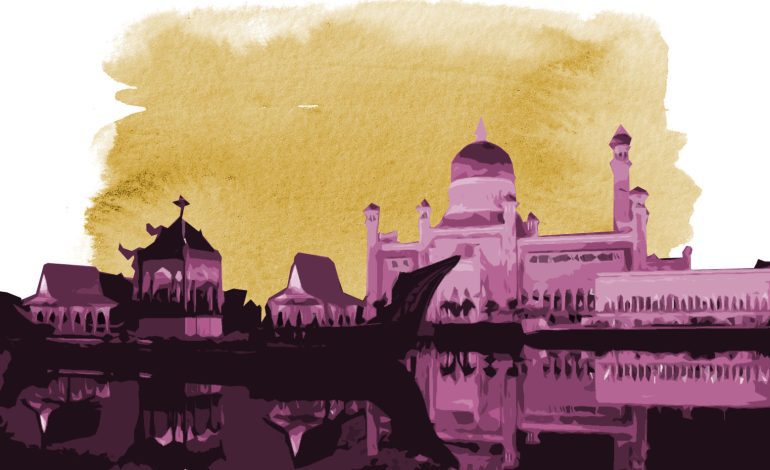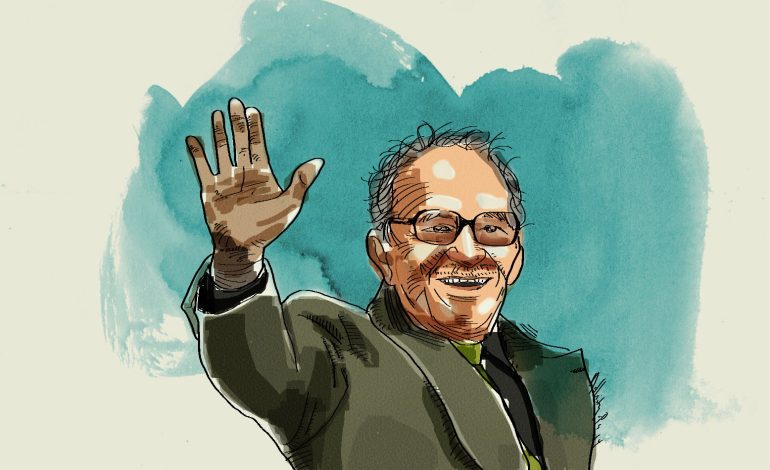Similar But Not the Same: My Life in Brunei

April 19, five years ago, was the first time I set foot on Brunei’s soil. Back then, I knew little about the country I was moving to, but I had told myself that if I believed I could walk on water, I must first get off the boat. This was how I got myself to leave behind my comfort zone in my homeland of Indonesia, and took up a new job in the Sultanate.
Upon arrival at the Brunei International Airport, I was welcomed by a staffer and a driver from my company. The driver picked up my carry-on bag and two other suitcases, including a jumbo-sized luggage that I bought in the United States years before. It was a supersized bag that perfectly accommodated a traveler who cannot travel light like me. I had to pay nearly Rp 3 million for excess baggage upon checking in at the Soekarno-Hatta Airport in Jakarta. Luckily, the company reimbursed the total expenses later.
On our way to my apartment, I saw from the car’s window that the city had no skyscrapers. There were green fields here and there with few low-rise buildings. Though English is widely spoken here, most public signs are written in Malay and Jawi script (the Arabic alphabet for Malay).
When the car was passing a sign saying “Kompleks Jabatan Kerajaan”, I asked my colleague if it meant the state palace.
“That’s where all government offices are located,” she said.
I had assumed that was where the Palace was located because in Bahasa Indonesia, kerajaan means kingdom. Here, kerajaan means government while jabatan means department. In Indonesian the latter means position or role, which is called jawatan in the Malay language. This was one of the many differences I would later learn between Indonesian and the Bruney’s Malay language.
In less than 10 minutes – as there was no traffic jam at all – we arrived in my flat, a three-storey building with no elevator. I apologized to our driver for having to go up and down carrying my bulky luggage, but at the same time I couldn’t stop laughing. How in the world a modern three-storey flat doesn’t have elevator?
Up in my apartement, after having been shown all the facilities and given the keys, I placed my luggage inside my bedroom and sat down on my bed. I stood up again to switch on the air condition, and opened a curtain.
Seeing a balcony, I opened the sliding glass door from and was about to step out when I saw something that made me shriek. The balcony’s floor was filled with birds droppings! All the tiles had turned black, and the odor was unbearable. I closed the glass door quickly and sat down on my bed, laughing again. Welcome to Brunei, Miss Piri!
As it turned out Brunei, a Malay Islamic Monarchy with 400,000 populations, has more to offer than air-conditioned mosques or Kampong Ayer (water village), a 1,300-year old settlement of houses on stilts located on the Brunei River.
My friends introduced me to jungle trekking and it has since become my favorite pastime. I go trekking in the country’s recreational parks at least twice a week. In each of the country’s four districts, there are more than one recreational parks or forest reserve. The three recreational parks where I live is only a 15-minute drive away. I usually spend an hour or two to trek in the jungle, where I can still see monkeys scrounging for food. This is the closest I had ever lived to nature.
I had previously lived in big cities in Indonesia or overseas where the skyline buildings were easy to spot and the night offers a variety of entertainments. Traffic jam was part of the daily life, and so was the excess pollution. In Brunei, life revolves at a slower pace. I get to enjoy the greenery, inhale fresh air (which according to the Pollutant Standards Index hovers at below 50 daily), and sleep longer.
The fact that Brunei is located on the island of Borneo makes its people, culture, local belief and food more or less similar to Indonesia’s. There are around 70,000 Indonesians living in the country, and many of them work at the restaurants. I can find Javanese, Sundanese or Padang food so easily. I was surprised to find out that the Javanese dish Ayam Penyet, or smashed fried chicken, is famous here. Nearly every single stall or eatery place here serves Ayam Penyet, including rice and sambal (chilli), at around $3.50 Brunei Dollars (Rp 31,500).
I told my colleagues that when I worked in Jakarta, if people saw me eating Ayam Penyet, it’s a sign that I was dead broke because it is mostly sold at street stalls. Bruneian takes their food with “Air Bandung” (or Bandung water), a combination of water, sweet condensed milk and rose syrup, which is similar to what Indonesians know as “Soda Susu Gembira”.
Sometimes it doesn’t feel like I’m living in a foreign country. I often hear waiters, waitresses and chefs speak Javanese or Sundanese, which makes me feel both at home and proud, because they continue to speak their mother tongue.
But once, an Indonesian waitress annoyed me, when she took my order in Malay with a bit of Brunei’s accent mixed with her thick Javanese accent, although I had given her instruction in Bahasa Indonesia. I became even more annoyed when I overheard her relaying the order to the chef in the kitchen in Javanese. Why the heck did she not speak to me in Javanese in the first place? Though I don’t speak the dialect fluently, I can understand some words, and would have appreciated when someone spoke her mother tongue.
I must say that it has not always been easy to be away from my loved ones, good friends and my homeland, but it hasn’t been bad either. I often question myself what is home anyway, but I actually know the answer already.
Wherever I decide to get off a boat with my bulky luggage in tow, and wherever my existence can bring impact, that is home.
About Sally Piri
Sally is a journalist who loves dogs, traveling, reading biography, dancing (thanks to her Manadonese root) and listening to jazz and bossanova.






















